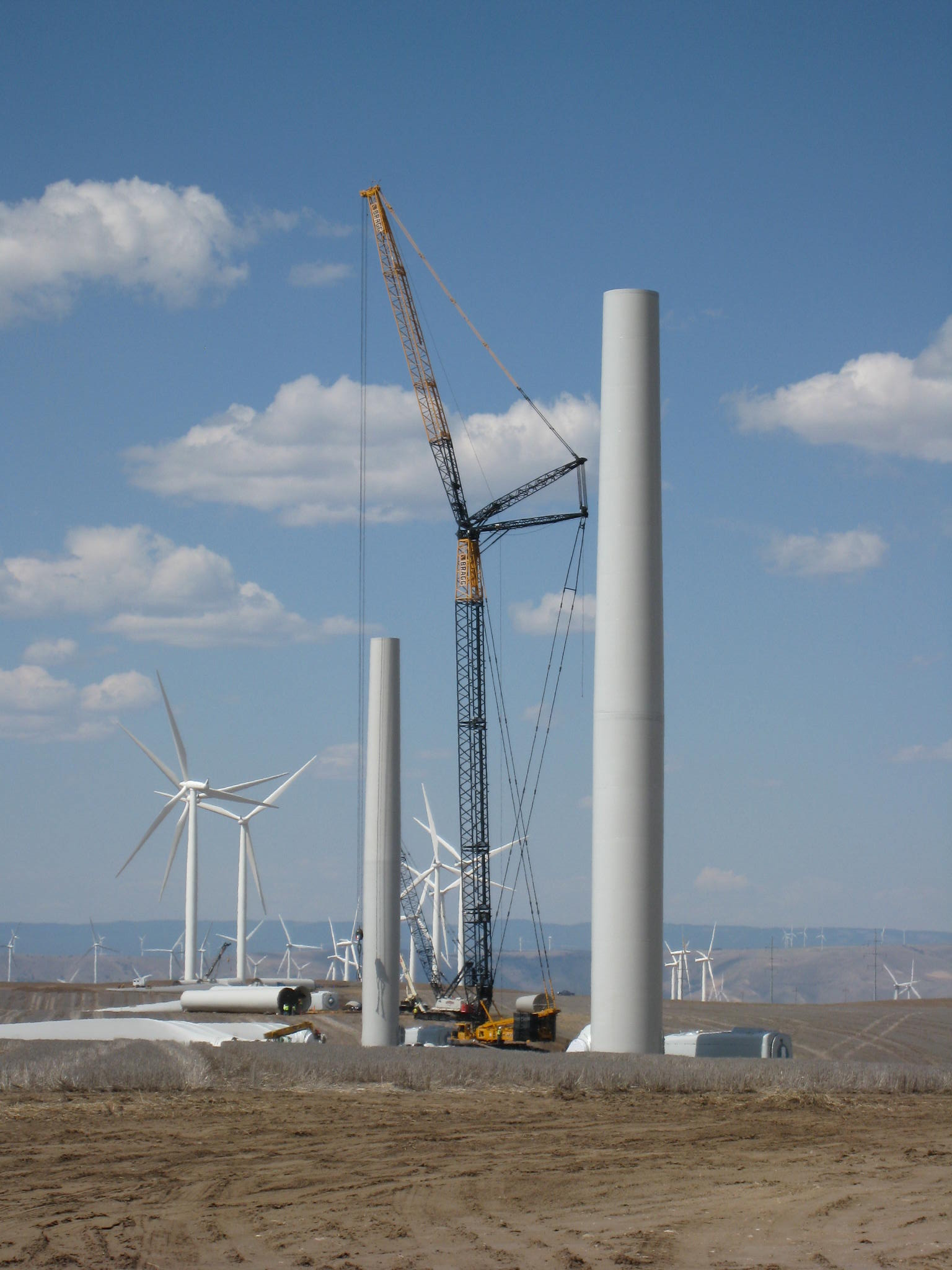Working for Oregon’s Clean Energy Future
As Oregon moves toward a clean energy future, including 100 percent clean electricity by 2040, we’ll need a robust workforce to help make it happen.
Oregon will need electricians to install and maintain electric vehicle charging, engineers and construction experts to build and maintain solar, wind, battery, and other clean resources to support the grid, and energy efficiency technicians to reduce our energy consumption to help keep energy costs low – among many other potential family-wage jobs.
In our 2022 Biennial Energy Report, the Oregon Department of Energy looked into current local perspectives on workforce and supply chains in Oregon, with a special lens on the COVID-19 pandemic, which caused unprecedented global economic disruptions. While much of the economy bounced back to pre-pandemic levels within a couple of years, some challenges remain in Oregon’s energy sector around workforce and supply chains. ODOE spoke to numerous energy sector stakeholders who shared the sector changes and the challenges they are facing. Feedback centered around four main focus areas:
Oregon organizations and businesses are struggling with recruitment, retention, and training for workers.
The sector will need to consider what opportunities are available for energy businesses and workers as the industry transitions to a low-carbon future.
The industry is endeavoring to train and attract new energy sector workers.
Organizations and businesses sometimes struggle to procure equipment, components, and materials they need to construct, install, and maintain energy systems.
While the Oregon Office of Economic Analysis reports that job growth has cooled slightly in recent months, the Oregon labor market remains tight with historically low unemployment and job openings often outnumbering job seekers. At the same time, there’s a generational transition occurring as experienced workers move into retirement – which means there will be gaps in workforce needs for some energy industries.
The good news is that recent federal investments, including the 2021 Infrastructure Investment and Jobs Act and the 2022 Inflation Reduction Act, will be rolling out programs to help bolster clean energy jobs over the next several years.
Other national programs are offering funding now in preparation for the clean energy transition and those federal investments. Communities and nonprofit workforce development organizations have a couple of upcoming opportunities:
Climate-Resilient Employees for a Sustainable Tomorrow (CREST) | Jobs for the Future (JFF) Quality Green Jobs Regional Challenge
Applications due May 15, 2023
The Quality Green Jobs Regional Challenge is a CREST initiative led by Jobs for the Future (JFF) that will directly invest nearly $5 million in communities to develop and implement regional quality green job strategies. The Challenge aims to prepare 25,000 individuals in diverse regions across the United States for quality green jobs while disrupting occupational segregation in the growing green economy.
U.S. Department of Labor Building Pathways to Infrastructure Jobs Grant Program
Applications due July 7, 2023
Funds public-private partnerships to develop, implement, and scale worker-centered sector strategy training programs that train and prepare a skilled workforce.
Will train job seekers in advanced manufacturing; information technology; and professional, scientific, and technical services occupations that support renewable energy, transportation, and broadband infrastructure sectors.
In addition to harnessing opportunities like the grants above and forthcoming federal funding, the Oregon energy sector is organizing in other ways to ensure that we have the workforce we need for the clean energy transition. Recently, Portland General Electric convened the Oregon Clean Energy Workforce Coalition with more than 50 members (including ODOE). Energy Trust of Oregon has also spearheaded new initiatives on this subject, including a Contractor Development Pathway designed to promote equity and diversity.

